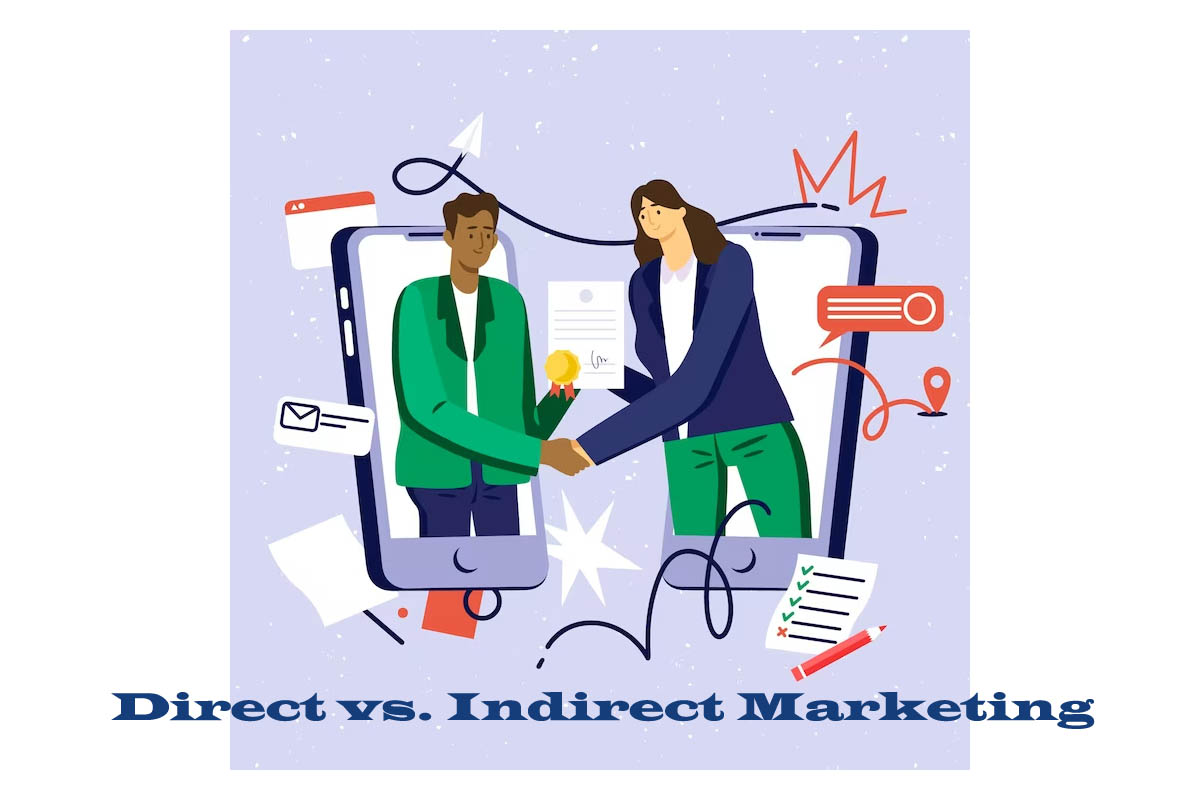Direct vs. Indirect Marketing
Direct vs. indirect marketing Are two strategies organizations use to promote their services and products. A lead is an individual who will turn into a customer for your business. Both of these strategies have positive effects on any business. But there are some differences between both of these marketing. Let us look at them.
What is Direct Marketing? (Direct vs. Indirect Marketing)
Direct marketing is defined as a business that engages with the leads directly. Suppose, for example, an organization that will use ads or commercials to promote its products and services is called direct marketing. Since these commercials are seen directly by the potential customers. Now, there are different types of direct marketing, such as:
- TV commercials or ads
- PPC Advertising
- Email marketing
- Billboards
- Flyers posters
- Phone calls and messages
- Emails
What is Indirect Marketing?
Indirect marketing is defined as an organization that places itself in different positions so that additional leads could find them To engage with the organization instead of it engaging with them. Suppose, for example, an organization will discuss with other brands to promote its brand.
Many types of social media marketing are considered indirect. With the help of indirect marketing, brand awareness is increased, a good connection is built with other brands, and it helps build authority for a brand. Some of the examples of indirect marketing are:
- SEO
- Blogging
- Social media post
- PR
- Live events
- Podcast
- Videos
Advantages and Disadvantages of Direct and Indirect Marketing (Direct vs. Indirect Marketing)
Advantages of Direct Marketing:
Direct marketing is great when an organizer chooses a particular target audience. Suppose you can create pamphlets for locations where you want to target your audience.
With a particular audience, you can collect information about the audience preferences, which will help you refine your business based on your preferences. Telemarketing can be an excellent example of this advantage.
You can create customized messages about your brand for your target audience. For example, could you send emails by their name or add the basis of customer data you collected?
Advantages of Indirect Marketing
When you compare it to direct marketing, indirect marketing is less expensive. A commercial that uses indirect marketing doesn’t need to pay for commercial ads or billboard spaces, and it can walk on its website to rank on search engine results.
Indirect marketing has long-term effects that help leads to interact with your brand. For example, if you post a video or picture on social media for an organization, leads will interact with it for several months or years.
Indirect marketing helps the brand build trust since the lead interacts with your brand rather than you interacting with them in the initial stages.
Disadvantages of Direct Marketing
Only a particular audience interacts with your brand since you are marketing your business in specific places. For example, if you paid for a TV ad, it will be played only for a particular time, and then it is stopped, so there is a risk of many people missing it.
Most of the time, in direct marketing, you have to send emails as a part of the campaign, so there is a risk of your emails appearing as spam in recipients’ inboxes. This will make your brand lose trust and brand reputation.
Disadvantages of Indirect Marketing: (Direct vs. Indirect marketing)
Indirect marketing requires constant work. If that does not happen, then you will lose your potential leads. For example, social media influencers must constantly engage with their audience if they are working for a brand PR and maintaining a good image; if they don’t, the brand could lose trust.
Indirect marketing tends to have less measurable data from the demographics since it is less specific than direct marketing. For example, you can collect data about how many people interact with your brand. Still, it is complex to contain information about the type of people interacting and their preferences.
Conclusion
Direct vs. indirect marketing has both advantages and disadvantages. Based on different factors and requirements of your brand or organization, you can select one of the marketing that will have positive results on your business success. In this article, we have briefly described what direct and indirect marketing is.

